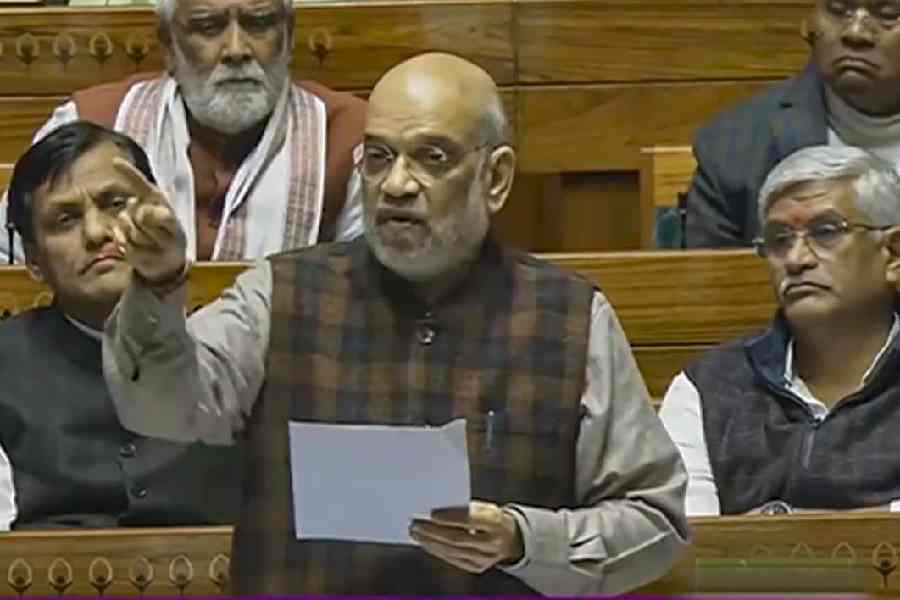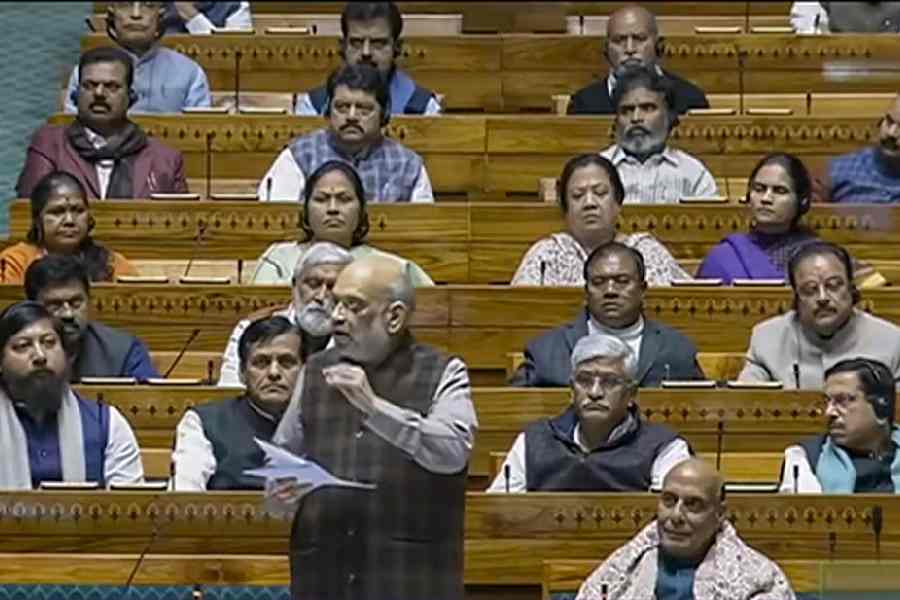Overhauling the criminal justice system of the country, the proposed three laws will help deliver speedier justice to the people and ensure there is no "tarikh pe tarikh", Home Minister Amit Shah asserted in Lok Sabha on Wednesday.
Replying to the debate on the bills, Shah said the existing criminal laws - the Indian Penal Code (IPC), Indian Evidence Act and the Code of Criminal Procedure (CrPC) - were reflective of the colonial mindset with the intention to punish and not impart justice.
Shah said the timeline and financial challenges have been a big barrier to securing justice in the country.
"...justice is not delivered timely....tarikh pe tarikh milti hain (prolonged trial), police blame courts and government, courts blame police, the government holds the police and judiciary responsible...everyone keeps shifting the blame on each other," he said.
"For the poor, the biggest challenge to get justice is finance..now, we have made many things clear in the new laws...there will be no lingering on," he said.
The three bills, which were later passed in Lok Sabha to replace the colonial-era criminal laws, seek to bring comprehensive changes to the criminal justice system with a human-centric approach and a focus on imparting justice instead of imposing penalties.
The Home Minister said that now an FIR will have to be filed within three days of receiving the complaint and the preliminary enquiry will have to be finished within 14 days.
"Enquiry report will have to be submitted to a magistrate within 24 hours, the filing of charge sheet cannot be delayed for more than 180 days and even if the investigation is still pending, special permission will have to be taken from the court.
"The judges will not be able to reserve judgement for more than 45 days..the visit of an FSL team will be mandatory in cases of offence where punishment is more than seven years," he said.
"Now the accused will get seven days to file a plea for acquittal...
"The judge has to hold the hearing in those seven days and in a maximum time of 120 days, the case would come to trial.
"There was no time limit for plea bargaining earlier. Now if one accepts their crime within 30 days of the crime then the punishment would be less...
"There was no provision to present documents during trials. We have made it compulsory to produce all documents within 30 days. No delays will be made in that," Shah added.
The minister said a provision for "trial in absentia" has also been introduced.
"Several cases including those which shook the nation like Mumbai bomb blasts..the accused have taken shelter in Pakistan and trial has not been held... now they will not be mandated to be here..if they do not appear before the court within 90 days, the trial will be conducted in their absence," he said.
According to Shah, the Bharatiya Nyaya (Second) Sanhita, Bharatiya Nagarik Suraksha (Second) Sanhita and the Bharatiya Sakshya (Second) Bill, passed by voice vote, were drafted after comprehensive consultations. He said that he had gone through every comma and full stop of the draft legislations before bringing them before the House for approval.
Except for the headline, this story has not been edited by The Telegraph Online staff and has been published from a syndicated feed.












